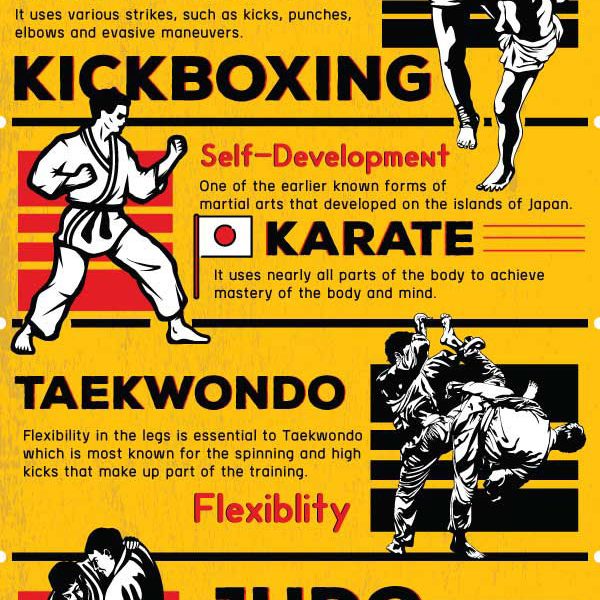A Comparative Study Of Standard Martial Arts And Modern Combat Sports: Highlighting The Crucial Differences
A Comparative Study Of Standard Martial Arts And Modern Combat Sports: Highlighting The Crucial Differences
Blog Article
Created By-Thuesen Snedker
When you consider martial arts, do you lean much more toward the traditional methods or the modern combat sports? Each path provides one-of-a-kind benefits and experiences, shaped by their viewpoints and training approaches. Conventional martial arts emphasize individual development and discipline, while modern fight sporting activities concentrate on competition and efficiency. Understanding these distinctions can assist you in selecting the right technique for your trip. Yet just how do these differences show up in training and philosophy?
The Viewpoint and Background Behind Conventional Martial arts
While many people connect martial arts with physical fight, the approach and background behind standard martial arts run much deeper. You'll discover that these disciplines highlight personal growth, discipline, and regard.
Stemming from old methods, standard martial arts were typically established for Self-Defense and spiritual advancement. They symbolize concepts such as balance, harmony, and self-discipline, leading experts past simple battling abilities.
As you train, you'll not only discover methods however additionally acquire understandings right into the culture and worths that formed these arts. The routines and customs, frequently given through generations, promote a feeling of community and belonging.
The Affordable Nature of Modern Fight Sports
Modern fight sports have actually transformed the landscape of martial arts right into a highly affordable sector, where athletes take on in an examination of skill, technique, and endurance.
You'll discover that competitions are commonly arranged with strict policies and guidelines, making sure justice and safety and security. These events draw in huge audiences, sustaining the enjoyment and intensity of competitions.
free karate classes near me educate rigorously, not just for physical prowess however also for mental strength, understanding that every information counts in the ring. The adrenaline thrill during competitors is palpable, as boxers push their restrictions to declare success.
https://self-defense-moves-every88528.thenerdsblog.com/40876257/the-result-of-young-people-martial-arts-educating-on-scholastic-success-and-focus and artistry entailed, making contemporary fight sporting activities a thrilling phenomenon that remains to develop and captivate lovers around the world.
Training Methods and Methods: A Comparative Evaluation
The competitive atmosphere of modern-day battle sports needs innovative training methods that vary considerably from conventional martial arts.
In contemporary training, you'll concentrate on certain techniques, competing, and conditioning, commonly utilizing drills that simulate real fight situations. You'll see an emphasis on measurable performance and constant competition to evaluate your skills.
On the other hand, conventional martial arts focus on kinds, katas, and thoughtful trainings, typically emphasizing self-control and respect over competitors.
Training is normally much less intense and may include repetitive practice instead of real-time sparring.
While both methods build ability and fitness, modern-day combat sports offer a much more vibrant and versatile training atmosphere, preparing you for immediate difficulties in the ring or cage.
Choose the course that aligns with your goals and passions.
Verdict
In choosing in between typical martial arts and modern fight sports, it really boils down to what you value a lot of. If you're searching for personal growth, self-control, and a feeling of neighborhood, conventional arts might be your best fit. Yet if you grow on competitors and real-time challenges, modern combat sports could be the way to go. Inevitably, both paths offer unique advantages, so it's everything about aligning your training with your personal goals and interests.
